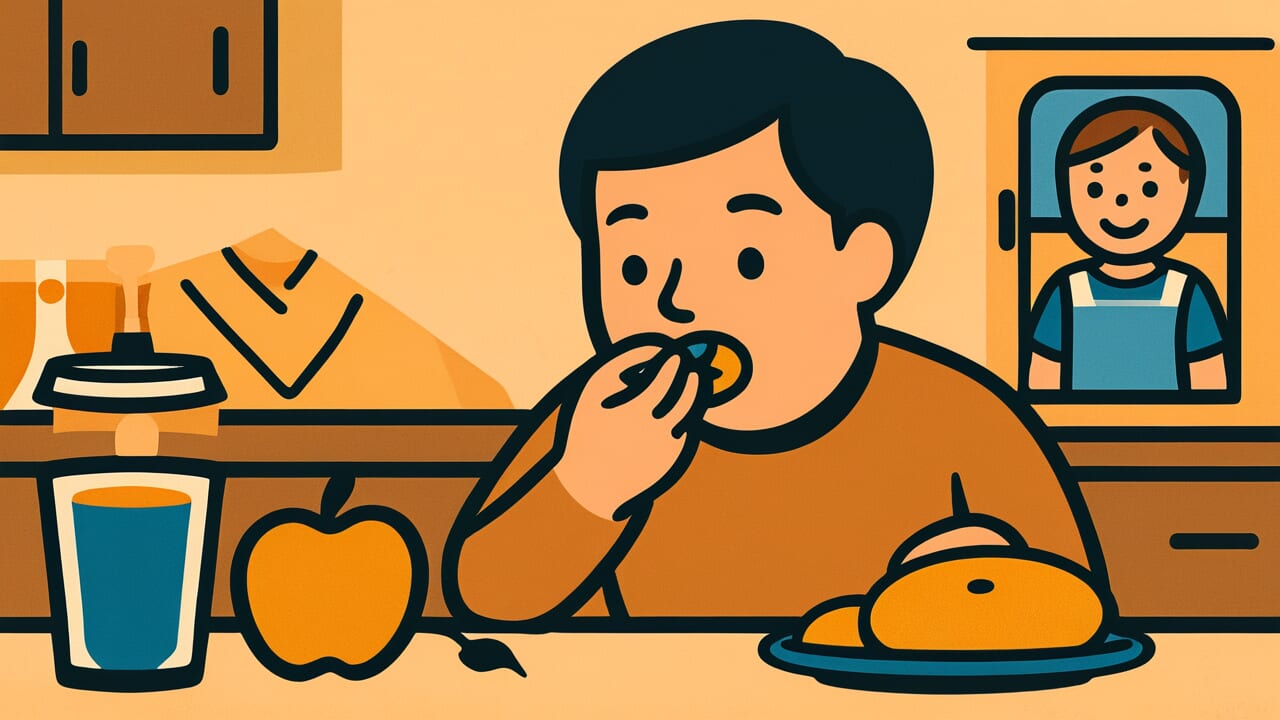How to Read “Eating habits over family lineage”
Hahakata yori kuikata
Meaning of “Eating habits over family lineage”
“Eating habits over family lineage” means you should prioritize establishing your own livelihood before worrying about relatives. Even if you’re concerned about your mother’s family or relatives, you can’t help anyone if your own life isn’t stable.
This proverb is used for people who get too distracted by others’ affairs and neglect their own foundation. It reminds those who try to help relatives out of goodwill, or those who meddle too much in others’ problems, to reconsider their priorities.
This teaching still applies today. Before getting caught up in others’ lives on social media or spending too much time on family obligations, remember to solidify your own work and life foundation first.
It may sound cold, but it contains practical and warm wisdom. Only when you’re independent can you truly support others.
Origin and Etymology
The exact literary origin of this proverb hasn’t been identified. However, the word structure itself offers interesting insights. The contrasting combination of “hahakata” (mother’s family) and “kuikata” (eating habits) forms the core of this saying.
“Hahakata” refers to the mother’s birth family, meaning maternal relatives. In Japan’s traditional family system, the relationship with a married daughter’s birth family held a delicate position.
When a daughter married, she became part of her husband’s family. This created distance from her birth family. Yet her affection and concern for maternal relatives never disappeared.
“Kuikata” literally means the way of eating, which represents one’s means of making a living. The direct expression “kui” (to eat) reveals the fundamental aspect of life and the urgency of survival.
This proverb likely emerged from common people’s lives. From the Edo period through the Meiji era, most people struggled just to make ends meet.
If you had energy to worry about maternal relatives, you should first ensure your own family could eat. This wisdom was born from harsh reality. The rhythmic sound of the phrase suggests it spread through oral tradition.
Usage Examples
- Caring for parents is important, but eating habits over family lineage—I need to stabilize my job first
- I want to help with relatives’ problems, but eating habits over family lineage, so rebuilding my own life comes first
Universal Wisdom
“Eating habits over family lineage” contains deep insight about fundamental priorities in human life. We are social creatures with an instinct to value connections with family and relatives. Yet we also carry the most basic desire for survival.
This proverb has been passed down because humans have always wavered between these two desires. The more compassionate a person is, the more they tend to sacrifice themselves for relatives and others.
Then they realize their own life has become unsustainable. This situation existed in the past and still exists today.
Our ancestors knew the harsh reality that goodwill alone cannot sustain life. Compassion for others is beautiful, but it only has meaning when you have a stable foundation yourself.
It’s like airplane safety instructions: “Put on your own oxygen mask before helping others.” The same principle applies here.
This proverb doesn’t teach selfishness. It contains paradoxical kindness: if you truly want to help others, first make sure you don’t collapse. Only through independence can you truly support people. That’s the unchanging truth of human society.
When AI Hears This
Daily eating behavior is, from a neuroscience perspective, pure “reward system reinforcement learning.” When you eat delicious food, dopamine releases in your brain, reinforcing that behavior pattern.
Repeat this, and within just a few weeks, neural circuits physically change. Specific eating habits become “default settings” carved into your brain.
Behavioral economics research shows people need an average of 66 days to deviate from established habits. With three meals daily for a year, that’s 1,095 reinforcements—far more powerful than genetic predisposition.
For example, identical twins with the same genes show striking differences. If one continues high-calorie eating while the other maintains a vegetable-centered diet, their weight difference after 10 years averages over 15 kilograms, according to longitudinal studies.
More fascinating is the “present bias” effect. Immediate rewards like delicious food feel 2.5 times more attractive than delayed rewards like future health, confirmed by experiments.
Therefore, people prioritize daily eating habits even when they know their genetic risks. This proverb strikes at the core of behavioral science: habits that are “rewritten daily” dominate life more than genetics, the “unchangeable initial settings.”
Lessons for Today
This proverb teaches you how to balance kindness with reality. Every time you see someone’s troubles on social media or receive consultation from relatives, you might want to reach out. That feeling is wonderful. But pause and think for a moment.
Is your own life stable right now? Is your work going well? Do you have savings? Is your physical and mental health maintained?
If you try to support others while these foundations are shaky, you’ll eventually collapse. And then you won’t be able to help anyone.
Modern society often misunderstands “taking care of yourself” as selfish. But securing your own life foundation isn’t cold. It’s preparation to become someone who can truly help people in need in the future.
First, look at your own feet and stand firmly. Only then can you become someone’s support. Choose sustainable kindness over self-sacrificing kindness. That’s the path to happiness for both yourself and those around you.



Comments